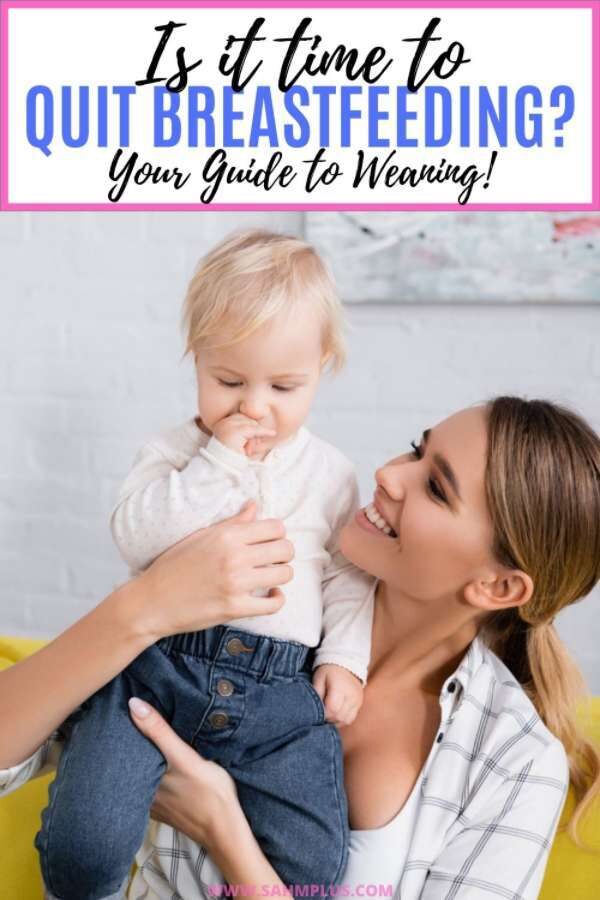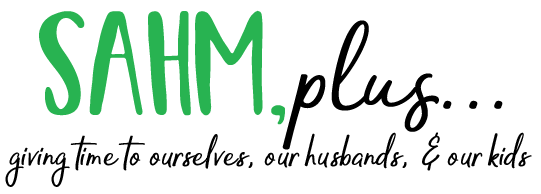Everything about breastfeeding is extremely sensitive and personal, right down to when and how to stop breastfeeding.
Breastfeeding can be good for post-partum weight loss and building a strong bond with your baby. Plus, breastfeeding offers the potential benefit of stronger immune systems for babies.
Deciding to breastfeed is just one of the many carefully calculated decisions you’ll be making as a mom.
It’s no surprise, given the societal expectations and the strong emotions one feels about her breastfeeding experience that we seek others for the support over the when and how to stop breastfeeding.
But remember, your breastfeeding journey is between you and your baby.

What is the Best Age to Stop Breastfeeding?
The World Health Organization says “[f]rom the age of 6 months, children should begin eating safe and adequate complementary foods while continuing to breastfeed for up to 2 years and beyond.”
“2 or more years?” you ask.
According to this paper about when to wean, biologically it makes sense that humans breastfeed between 2.5 to 7 years.
We may be conditioned, or pressured, by social stigma and culture to quit breastfeeding before we’re biologically ready.
So, I say stop breastfeeding when you and your baby are ready.
In the case of my second baby, I was personally ready at the one-year mark and slowly weaned my son off breastmilk.
With my first, we stopped around 6 months because we found out my daughter was intolerant of dairy and soy in my diet. At the time, I didn’t know how to cut all that out, so we switched to a hypoallergenic formula.
Your personal situation and feelings about breastfeeding will help you determine when it’s time to quit. No one, but you and your baby’s needs, should be accounted for when making this decision.
Is It Okay to Just Stop Breastfeeding?
Sure, it’s okay, but it’s not advised. Sudden weaning can lead to uncomfortable issues like engorgement, clogged ducts, and mastitis.
As a mom who dealt with clogged ducts before, I can tell you they are not fun.
Save yourself the hassle and try to gradually reduce breastfeeding instead of setting a date with disaster.
Other factors to consider when you decide to quit breastfeeding:
Will you pump breastmilk for your baby?
If your baby is younger than 1, you’ll need to supplement with formula. Is the expense of formula something you can take on?
If you’re not interested in introducing or supplementing with formula and your baby isn’t older than 1, you may have to consider supplying pumped breastmilk.
Is your baby ready?
These are 2 major signs your baby is not ready to wean from breastfeeding:
- Doesn’t yet sleep through the night
- Doesn’t eat when mom is away
Be sure to check out 20 signs your baby is not ready to wean.
Some babies need the comfort of breastfeeding longer than others.
From experience, my second baby would not touch a bottle, formula, or even my pumped breastmilk. And as much as I didn’t even want to breastfeed in the first place, it was important to me that I provide my baby with the comfort he needed.

How Do You Stop Breastfeeding Without Getting Mastitis?
Mastitis is a painful infection in the breast! So, how do you stop breastfeeding without getting it?
The leading cause of mastitis is milk that got stuck in the breast. However, a blocked milk duct and bacteria entering the breast are two other causes.
If mastitis is typically caused by trapped milk in the breast, it makes sense to gradually stop breastfeeding instead of quitting abruptly.
How to Stop Breastfeeding and Dry Up Your Breastmilk
Once you’ve determined it is time to stop breastfeeding, you’ll need to work on weaning and drying up your breastmilk.
The aim is to reduce the potential for clogged milk ducts or getting mastitis, so the recommendation remains to wean gradually.
Try these tips for drying up your breastmilk:
- Wear a well-fitting bra that won’t contribute to clogged milk ducts.
- Decrease breastfeeding sessions – shorten sessions or supplement sessions with formula or age-appropriate feedings to your baby.
- Shorten pumping sessions – to lessen milk buildup and signal to your body to begin producing less milk, shorten pumping sessions to only relieve the discomfort of the buildup of milk in the breast.
- Try herbs that may help dry up milk: certain herbs may help dry up breastmilk supply or try Earth Mama Organic No More Milk Tea.
The time it takes to dry up your milk supply is dependent on many factors. For some, drying up breastmilk can take several days to several weeks.
In general, if you’re still breastfeeding, even occasionally as you gradually wean, drying up your milk supply can take longer than someone who quit nursing or isn’t producing as much milk.
Breastfeeding and when to quit is a very sensitive and personal topic. It’s also important to learn how to stop breastfeeding while reducing the chances of mental or physical issues for mom and baby, in the process.
Do you have any additional suggestions about how to stop breastfeeding or reduce milk supply?
